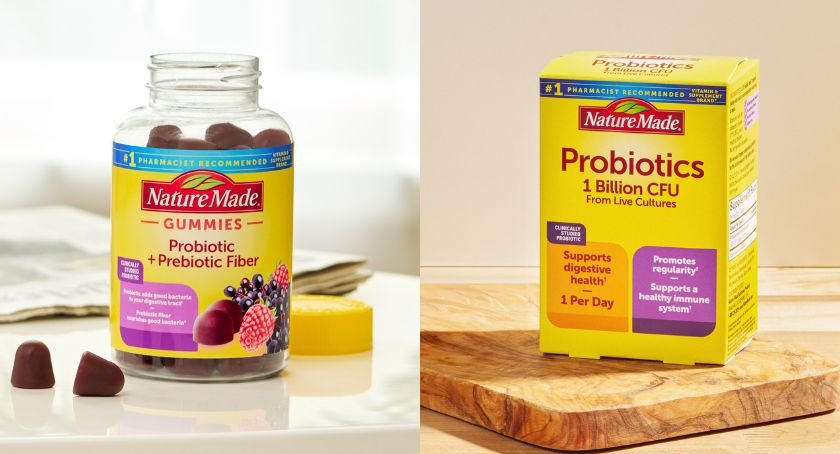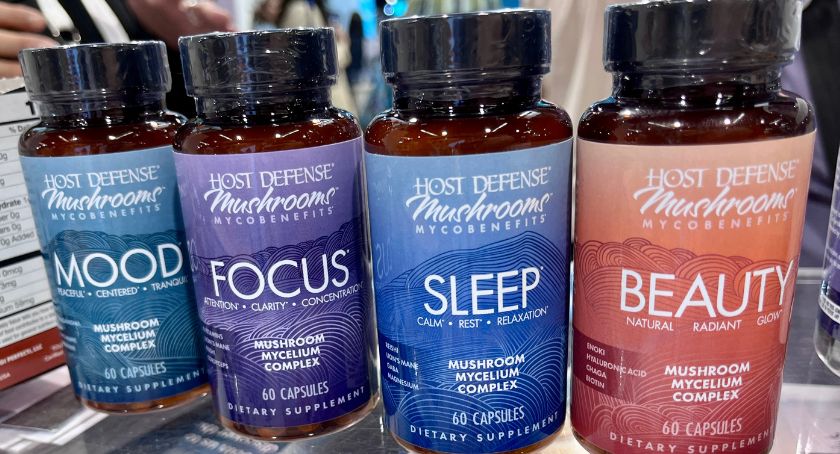Exclusives
The Future of Medical Foods
Metagenics conference stresses the importance of science as the foundation of new therapeutic foods formulated to fight against chronic illness and obesity.

By: Joanna Cosgrove
Originally developed to use in the treatment of genetic metabolic diseases in infants, the evolution of medical foods—products specially formulated to address specific health concerns—has gained steady momentum in recent years, even earning formal recognition from FDA. The forerunner in the field, San Clemente, CA-based Metagenics, Inc., delivered a series of workshop presentations on regulatory, research and business trends of medical foods at the recent World Health Forum at Harvard Medical School. According to Metagenics’ Jeffrey Bland, PhD, the company’s chief science officer and host of presentations, the future of food lies in the science of nutrigenomics, the study of how food affects genetic expression at the cellular level.
“Medical foods taken with a low-glycemic Mediterranean diet have been tested and proven effective in reducing metabolic syndrome, a condition that increases the likelihood of an individual developing heart disease, diabetes and other lifestyle-related conditions,” noted Dr. Bland. “This discovery is a tremendous benefit to the healthcare system. Now healthcare practitioners can expand their use of medical foods to help their patients to achieve better health today, and for the rest of their lives.”
At Metagenics, Dr. Bland helms a team of more than 40 scientists in the field of nutrigenomics, where the researchers test the phytonutrients found in plants for their health properties. Their work has earned more than 50 international and U.S. patents, and has been published in more than 80 peer-reviewed research journal articles.
During his presentation, Willy Pardiñas, Metagenics’ senior vice president, general manager of Americas, spoke about how scientific validation is the foundation for the acceptance and widespread use of promising medical foods. “The companies that are succeeding with medical foods are those that demonstrate a commitment to real science and evidence-based medicine,” he said. “They use the highest standards of clinical research including the double-blind, placebo controlled studies. Now, traditional pharmaceutical companies are beginning to see the value of medical foods as part of their portfolio, when these products bring clinical proof and broad applicability for fighting chronic illness.”
J.D. Weir, president and CEO of Primus Pharmaceuticals, echoed Mr. Pardiñas’ sentiments on the principles of solid science. “If we’re serious about giving healthcare practitioners real solutions for combating chronic disease, they need to know our solutions work and can deliver predictable outcomes,” he said.
An estimated one-third of Americans currently have metabolic syndrome. Most of those afflicted with this condition aren’t even aware they have it, or that it is putting them at greater risk of developing a chronic illness. According to Metagenics, helping patients to reverse metabolic syndrome will significantly lower the number of individuals who develop heart disease and diabetes, which in turn will fight the rapidly growing epidemic of these ailments that is occurring around the world.
Robert Lerman, MD, PhD, medical director for Metagenics, moderated a session on the clinical application of medical foods and cited research published earlier this year in the Journal of Clinical Lipidology on the effect of a medical food in helping reverse metabolic syndrome. The article reported the findings of a 12-week multi-center clinical trial conducted at three universities that showed Metagenics’ UltraMeal PLUS 360° medical food and a low-glycemic Mediterranean diet is almost twice as likely to lower certain cardiovascular risk factors as this same diet alone, and is 40% more likely to resolve the effects of metabolic syndrome.
Deanna Minich, PhD, Metagenics’ vice president of scientific affairs, addressed the importance of phytonutrients in the medical food delivery form, while Matthew Tripp, PhD, vice president, research & development, spoke about the breadth of active ingredients in medical foods that have an impact on chronic disease.
Next Generation Multi
In separate but related news, Metagenics recently announced the launch of a “professional brand” daily supplement that was formulated in adherence to the same clinical standards as its aforementioned UltraMeal PLUS 360° medical food.
According to the company, PhytoMulti is positioned as a “Smart Multi” daily supplement designed to “activate health potential with a science-based combination of phytonutrients, vitamins, and minerals,” targeting “cellular health to nourish cells, recharge cellular communication, and defend against free radical damage.
Metagenics said PhytoMulti was created using extensive research to develop a strategic combination of phytonutrients—bioactive secondary metabolites in plant-based foods—known for their antioxidant properties and “positive influence on cell signaling to communicate healthy messages throughout the body.” The proprietary formulation of 13 concentrated plant extracts and phytonutrients (resveratrol, lutein, zeaxanthin and lycopene, as well as an “optimized” blend of essential minerals and vitamins, including vitamin D3, folate and B12) was scientifically tested for potential biological activity to protect cells via antioxidant capacity and maintenance of DNA stability.
An independent laboratory evaluated PhytoMulti’s proprietary blend and the entire combination of active ingredients with the new total functional oxygen radical absorbance capacity (ORAC FN) assay that measures against five major free radicals. Unlike a conventional ORAC, which tests against only one radical, this expanded in vitro assay was said to have provided “a better sense of antioxidant protection against a variety of potentially damaging free radicals and other reactive oxygen species.” The analysis of PhytoMulti’s active ingredients (equivalent to the contents in one tablet) returned a total ORAC FN value of 12,600 trolox, demonstrating “exceptional” antioxidant capacity.
Metagenics also said the potential of the phytonutrient blend to help maintain DNA stability was validated using the COMET assay, a complex in vitro test using human immune cells. This assay demonstrated a 52% increase in DNA stability when cells pretreated with the phytonutrient blend were compared to control cells introduced to the same oxidative medium (peroxides).
PhytoMulti will be available January 1, 2012, through health practitioners nationwide. PhytoMulti with Iron, formulated for those who need supplemental iron, will be available February 1, 2012.





















